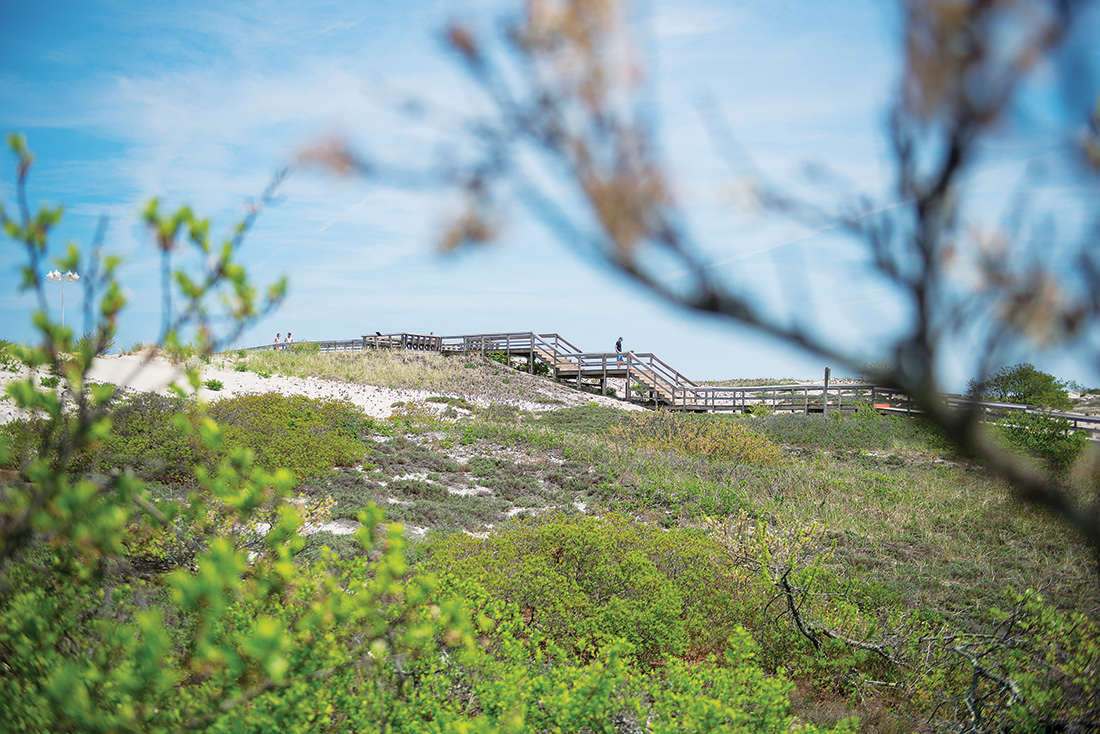Ipswich’s Crane Beach is a breathtaking spot to spend a day relaxing on the ocean. Step off the sand, however, and there is much more to the property than swimming and sunbathing. More than 2,000 acres of rich and varied coastal ecosystem occupy the surrounding land, providing homes to graceful deer, soaring birds, and even the occasional playful otter, all of which are increasingly at risk from rising sea levels.
Now the Trustees of Reservations, the organization that owns and manages the Crane Estate, is planning a new $1.5 million coastal education center that will immerse visitors in the ecology of the area, teaching them about both the unexpected natural world beyond the beach and the ways climate change is affecting the coast.
“The Trustees feel like there is a tremendous opportunity to connect people to the organization and our coastal work at Crane,” says estate director Peter Pinciaro. “It will be nice to tell people what we’re doing to protect such a rare resource.”
The organization expects to break ground on the new facility in the fall, and have it ready for visitors by spring 2022.
Crane Beach is the Trustees’ most popular property, with some 350,000 visitors every year. At the same time, the beach and the adjacent parcels that make up the Crane Estate are also some of the most ecologically significant areas in the group’s portfolio. The area is part of the Great Marsh, a sprawling salt marsh that plays an important role in protecting the land from the rising seas caused by climate change. There are cranberry bogs, pitch-pine forests, and vast swathes of dune grasses, all of which provide habitats to local and migratory wildlife.
For many years, the organization had wanted to take advantage of these dynamics and create a place to share with visitors the wonders of the location and the work the Trustees was doing to preserve the coast. A donor had even expressed interest in funding the project.
Then, last August, circumstances finally aligned, and the Trustees and the donor, who wishes to remain anonymous, began moving ahead with the plan.
The education center will be located right off the beach parking lot, in the spot where the current snack bar stands, a site that will ensure the new resource is visible to all visitors. The shape of the education center, intended to reflect the coastal environment, was inspired by the undulations of the sand dunes, says Sam Batchelor, partner at designLAB architects, the Boston-based firm designing the building.
The center will not only educate about climate change, it will adapt to it, Batchelor adds. Initially, the ground floor will also be used for educational activities, and the upper level will be a covered, largely open-air space. As sea levels creep up, however, the design allows for the upper story, elevated above the anticipated flood plain, to be easily enclosed and repurposed. It’s a strategy known as “adaptive reuse,” Batchelor says.
To reduce its contribution to climate change, the building will be well insulated to cut down on energy use and will use materials that don’t have a large carbon footprint.
“We’re trying to design the building to embody the most resilient design strategies, as well as to promote an appreciation for the beauty of the space,” Batchelor says.
The space will likely include a touch tank and interpretive elements that explain how the building design is responsive to its environment. Exhibits will be mobile and modular, allowing the center to be used flexibly for lectures, events, and everyday visits.
The major target audience for the center will be school groups visiting the beach and its surroundings on field trips. There is already a plan in place to pilot a site-specific curriculum with the Ipswich schools as soon as construction is complete. “We’ve long welcomed school groups to Crane Beach, but we haven’t really had a facility to stage their visits out of,” Pinciaro says.
Overall, he hopes the new center has both local and more global effects. He wants visitors to feel encouraged to explore the natural beauty the area’s thousands of acres have to offer. And he also hopes to spark deeper thoughts and conversations about the importance of the coastal landscape and how humans can impact it.
“With climate change, our coastal resources are really at risk,” Pinciaro says. “This is a major opportunity to help people learn how sea level rise is going to affect them if we don’t change our behaviors.”
For more information, visit thetrustees.org.

